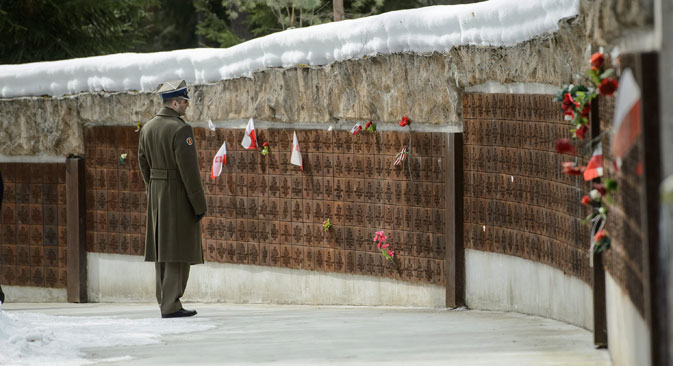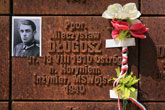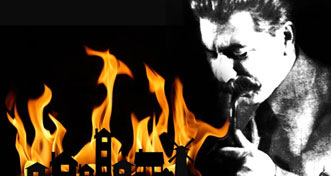Book remains open on Katyn

The Katyn case has overshadowed Russian-Polish relations for many years. Source: ITAR-TASS
On Oct. 21, the European Court for Human Rights (ECHR) issued its ruling on the Katyn case. Although the court left some issues unresolved, the verdict overall was taken as favorable for Russia. Polish experts responded that until the case is definitively closed, it will damage relations between Moscow and Warsaw.
In the first part of the ruling, Russia was absolved of guilt on claims related to Article 3 of the European Convention for the protection of human rights – prohibition of inhuman or degrading treatment.
The plaintiffs – families of the Polish officers shot near Smolensk – claimed that they had suffered as a result of Russia’s indifference towards their attempts to find out what really happened at Katyn.
In response to this claim, the judges concluded that by May 1998, when Russia ratified the convention, no doubts remained as to the fate of the Polish prisoners of war. “While not all bodies were discovered, their death was publically confirmed by Soviet and then Russian authorities, becoming historical fact,” said the court.
Secondly, the court failed to conclusively evaluate the Russian government’s investigation into the Katyn massacre. In 2004, the main military prosecutor suspended the case, which had been initiated in 1990, without either stating the guilty parties’ names or acknowledging the relatives of the deceased as victims.
In Strasbourg, the victims’ families sought to prove that these exclusions made the investigation was ineffectual, and asked the court to order it resumed. The ECHR judges ruled that this issue is beyond their purview of their court.
The ECHR found Russia guilty only for Art. 38 of the convention – obligations to ensure all conditions for court examination. According to the court’s ruling, Russia failed to provide “key procedure documents, proclaiming them secret.” The Russian authorities had marked the directive to suspend the case as well as about 1/6 of the materials relevant to the case “completely secret.”
The Strasbourg case was brought by 15 relatives of 12 of the Polish prisoners of war killed at Katyn. Among the plaintiffs was Vitomila Volk-Ezerka, daughter of Vincent Volk, one of executed Poles. Volk-Ezerka hoped that the 1990 investigation would shed light on the Katyn events from those years.
Before appealing to the ECHR, she had demanded declassification of relevant materials in the in Russian courts. After yesterday's verdict, Volk-Ezerka pledged to continue seeking justice.
Alexander Guryanov of the Polish program at the Russian human rights group Memorial, which was participating in the ECHR suit as a third party, said: “The Strasbourg court essentially evaded the key decision” by declining to evaluate Russia’s investigation.
“They acknowledged this crime, apologized to Poland, but many unclear points remain – the names of those perished and the culprits: the gate remains open to reinterpret previous statements,” Guryanov said.
Meanwhile, according to Eugeniusz Smolar, an expert at Poland’s institute for international relations, “until the Katyn issue is settled, it will besmirch our two countries’ relations – not so much on the government level, as rather on that of public opinion.”
Attached to the ECHR ruling was a “special opinion” from Russian judge Dmitry Dedov: Russia cannot be punished for crimes from 1940, when it didn’t exist.
According to him, “The Soviet Union was a totalitarian government” and along with the Poles “the victims of Stalin’s regime included millions of Soviet citizens,” so “responsibility for the crimes should belong to those who issued the directives, not the current government.”
First published in Russian in Kommersant.
All rights reserved by Rossiyskaya Gazeta.
Subscribe
to our newsletter!
Get the week's best stories straight to your inbox

